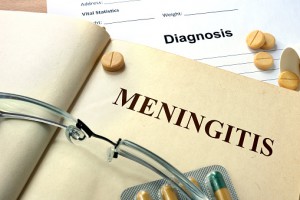This Sunday, April 24 in World Meningitis Awareness Day and Flushing Hospital Medical Center wants to share the following facts about meningitis.
Meningitis is an inflammation of the fluid that covers the brain and spinal cord. It is an extremely serious condition that can result in death. Although anyone can develop meningitis, those most at risk are children under five and adolescents between 15-19 years old.
There are two main kinds of meningitis:
Bacterial meningitis is the more severe form of the disease and requires treatment in a hospital setting. Viral meningitis is more common, and most people with this form of the illness get better in a couple of weeks. With mild cases, you may only need home treatment, including taking medicine for fever and pain and drinking enough fluids to stay hydrated.
Meningitis isn’t as contagious as viruses, such as those that cause the common cold, but it can spread from person to person via coughing, sneezing, kissing, sexual contact, or contact with infected blood or stool. A mother can also pass the germs that cause meningitis to her baby during birth.
Meningitis can be hard to diagnose because many of the early symptoms match those of the flu. The most common symptoms are fever, vomiting, headaches, stiff neck, sensitivity to light, drowsiness, and muscle pain. Babies may also develop a rash, have a lack of appetite and seem more irritable.
The best way to protect your child from meningitis is to make sure he or she gets all the standard immunizations for children, including shots for measles, chickenpox, and pneumococcal infection. When children reach adolescence, it is recommended that they receive two doses of a meningococcal vaccine to prevent bacterial meningitis.
Flushing Hospital encourages everyone to know the symptoms of meningitis and speak to their doctor about the meningitis vaccine.
All content of this newsletter is intended for general information purposes only and is not intended or implied to be a substitute for professional medical advice, diagnosis or treatment. Please consult a medical professional before adopting any of the suggestions on this page. You must never disregard professional medical advice or delay seeking medical treatment based upon any content of this newsletter. PROMPTLY CONSULT YOUR PHYSICIAN OR CALL 911 IF YOU BELIEVE YOU HAVE A MEDICAL EMERGENCY.

